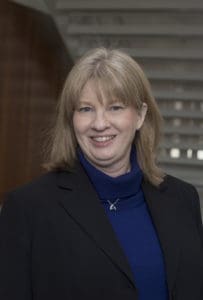Serving and Teaching Justice in a Divided Society. MBBI Spotlight: Pamela Struss
Pamela Struss began her career working as a probation officer at Dallas County Community Supervision after completing her Bachelor’s in Political Science from the University of Texas Arlington. Dealing with felony offenders, she states it was great training for dealing with people under a lot of stress. Although it taught her the importance of human relations and human communications, Pamela points out, “I had a hard time detaching and letting go”. Later on, she ventured into the role of a realtor, listing and selling properties in Northern Virginia.
From Real Estate to Mediation

“I have always been very politically active in my community”. After her husband was transferred to the Pentagon, Pamela took the opportunity to better understand her community and thus received her master’s degree in Conflict Analysis and Resolution at George Mason University. She explains that the degree blended all elements of “real estate, development, communications, and societal relations; in all these, there exists conflict”. She then went on to pursue a PhD in Conflict Analysis and Resolution, at Nova Southeastern University. With her experience working as a realtor, she wanted to change the direction in which she studied conflict, this time from a community development standpoint. “I saw how much conflict could come out of community development, and I wanted to bring conflict resolution and mediation facilitation to the local government in attempts to try and find mutually beneficial answers to the issues”.
Pamela specifically researched foreclosures and which communities it impacted the most. She found that many of the houses being foreclosed were the immigrants who were building the area McMansions. Pamela explains, “many of them had put large down payments, but because they didn’t understand the contracts, the companies took advantage of them”. This significantly affected the Hispanic community and after the revelations of real estate, Pamela declared, “I couldn’t go back to real estate after all I had learned, the lack of ethics was more than I wanted to overcome”.
After leaving the real estate industry, Pamela became an adjunct professor at the Carter School for Peace and Conflict Resolution teaching mediation theory, interpersonal conflict, and conflict resolution tools. Alongside teaching, she became a certified mediator by both the Supreme Court of Virginia and MC3 and began mediating small claims like child visitation hours and child support within family cases. “I like a combination of mediation and teaching. Mediation is so important right now, sometimes people just don’t know how to hear each other, and we’re here to help the communication process”. Pamela is now the President of the Virginia Mediation Network and was honored for her conflict resolution capabilities by Fairfax County, Virginia, as March is mediation month in Virginia.
Communities in Conflict
Throughout her PhD research, Pamela was able to experience conflict in different societies. In one experience she recalls her time in Israel, where she yearned to better understand the tensions that exist between the religious communities. She annotates a story on bias, recalling her experience where she mistakenly entered the Muslim gate where she was told not to go. After taking an Israeli taxi and being put out of the cab at midnight a distance from her hotel, she made her way to the Old City and found a Muslim shop keeper who she had befriended, the next morning he had facilitated a cab driver to safely deliver her to her destination, he ended up staying with Pamela for 3 weeks showing her the intricacies of his culture. “It was a really enlightening experience, it taught me to not take a group of people and label them as all bad; because in the end, the Muslim community in Jerusalem saved my life”.
She also describes the segregation in her current hometown Reedville, Virginia as “stepping back into the mid-1950’s. It collided with every value I had. I have tried to leave a couple of times, unsuccessful and now I understand why” she says, explaining that she is needed there to build bridges between the descendants of slave owners and slaves themselves. She is now working towards a liaison council with the sheriff department and community, with the aim of training law enforcement officers and council members on conflict resolution strategies.
Pamela analyses the conflicted communities as seen through the concept, “the life lens; We all arrive at a place with a certain set of beliefs, different genders, all those things that make us who we are, and it is amazing that we don’t get into conflict with more people”. This lens signals the differences in perceptions that we all have and the necessity to respect this difference of opinion to blend divergent societies.
Discovery of MBBI
Pamela found MBBI through her doctoral program. In a seminar she attended, they discussed a dispute between tribes in Africa in which the professor did not approach the issue in an effective way. Ken Cloke, one of the founders of MBBI, was at this meeting and voiced many progressive solutions that they could try. Finding his words inspiration, Pamela was onboarded to MBBI and became involved in the Trust Network. The Trust Network is implemented in her torn community and Pamela dictates that it is essential in restoring relationships as U.S. history has “left a dark place on our soul which needs to heal”.
When asked what advice Pamela would give to future peacebuilders she states boldly, “be brave, persevere, know yourself, spend a lot of time taking yourself apart and putting yourself back together, understand your fears/hopes, don’t be afraid to apologize, and know how to forgive”.
Article by Emily Shultis, MBBI Writer
